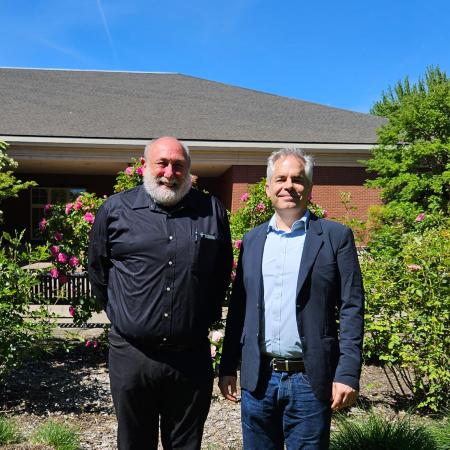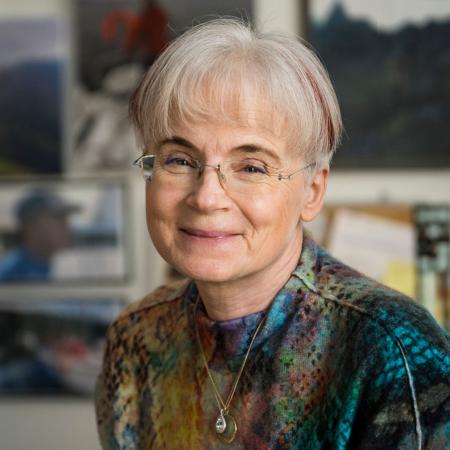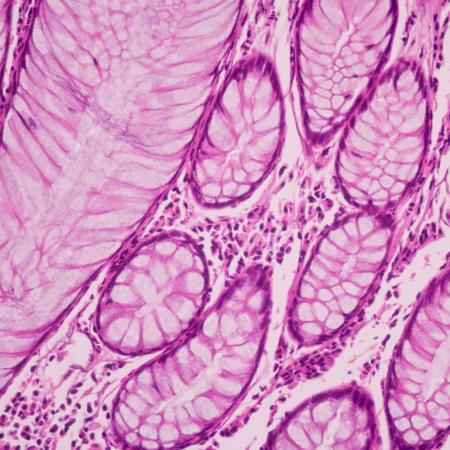The Mathematics Department is pleased to welcome into our community one new fixed-term assistant professor, David Fifty, one visiting professor, Ann Sitomer, as well as several new instructors (in the past 12 months), Floran Kacaku, Hannah Barta, David Collett, Farid Bouya, Dionysus Birnbaum, Brittaney Adelmann and Roger Roybal!
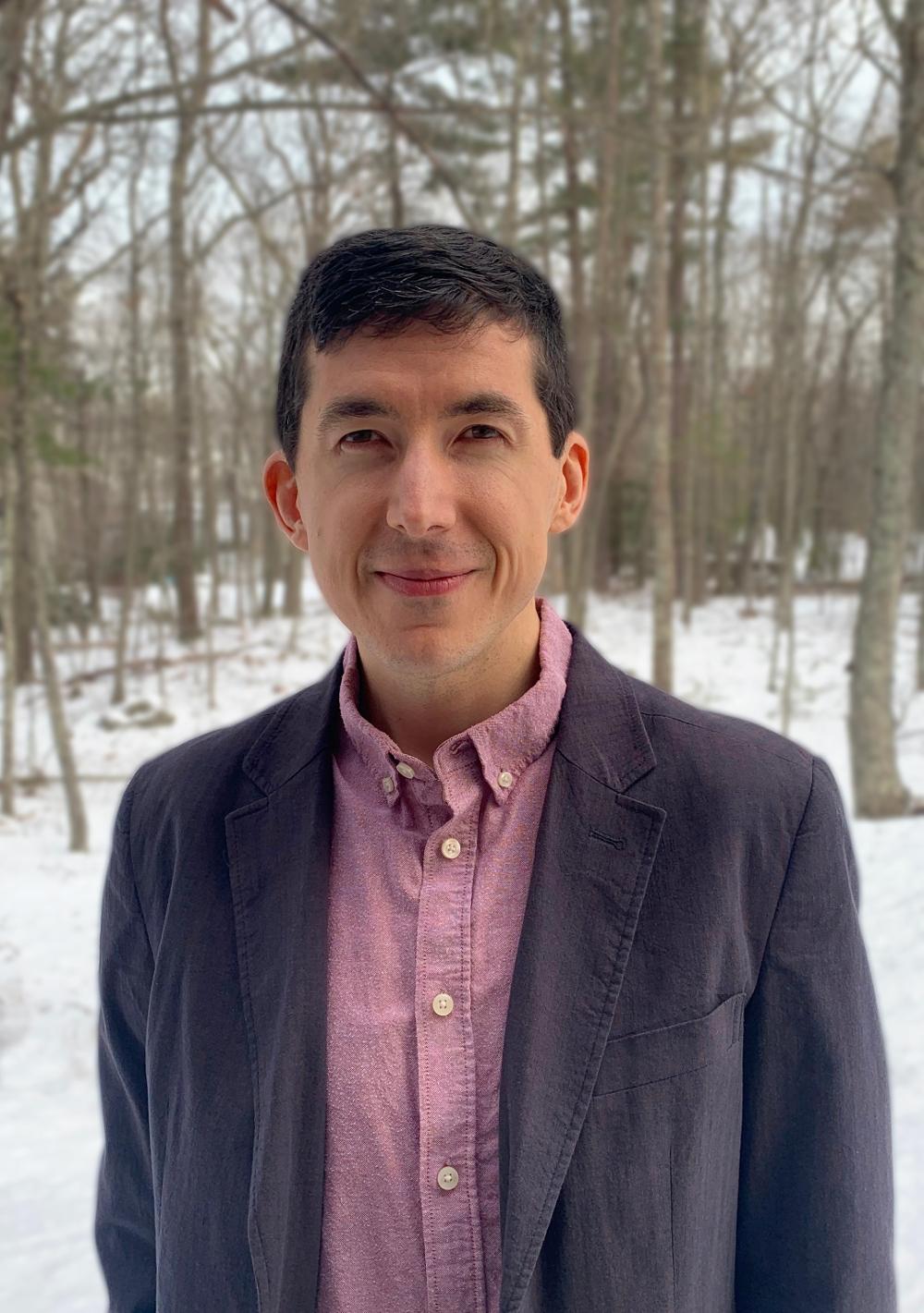
David Fifty
David Fifty (he/him/his) earned his Ph.D. in Mathematics Education in December 2020 from the University of New Hampshire (UNH), where he also earned his M.S. in Mathematics. Dr. Fifty's research focus is on student engagement in post-secondary mathematics classes. Currently, he is part of an NSF-grant that is developing and implementing a flexible professional development program to help graduate teaching assistants learn equitable, inclusive, and engaging teaching practices. He received the 2020 Leitzel Award for the Best Research Presentation at UNH, and was presented with teaching awards from UNH's Graduate School and the College of Engineering and Physical Science.
"Despite watching baseball for most of my life, I don't think that I could hit a homerun at Fenway Park. Similarly, I don't believe that watching someone else do mathematics is the most effective way to learn. My student-centered approach towards teaching is inspired by my belief in the effectiveness of discovery and formulating personal understandings of mathematical concepts. A necessary part of this is to rehumanize mathematics and respect students' whole-person identities." – David Fifty
His favorite mathematics subject is Complex Analysis, which inspired his Ph.D. minor on Weighted Composition Operators between Zygmund and Bloch-Type Spaces. He loves to run, especially so he can eat more vegan donuts.
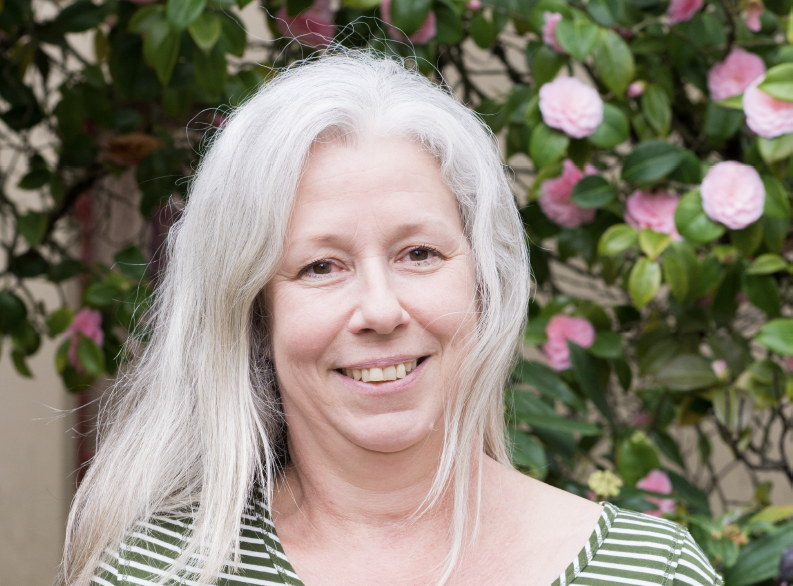
Ann Sitomer
Ann Sitomer has a B.A. in liberal arts from St. John’s College, a B.S. in mathematics from the University of Southern Maine, an M.A. in applied mathematics from Arizona State University, and a Ph.D. in mathematics education from Portland State University. Dr. Sitomer’s research focuses on department-level learning and change in the context of postsecondary STEM education change initiatives, focusing on the role teaching professional development and professional societies play in change.
"Teaching is a complex practice and I believe we should be kind to ourselves and each other as we learn about teaching. Why is teaching complex? For many reasons. For example, we need to make sense of learners’ emergent mathematical thinking, determine what aspects of that thinking is viable in the mathematics community, and pose questions that will help the learner – or the whole class – build on this learners’ contribution, and try to do this in the moment." – Ann Sitomer
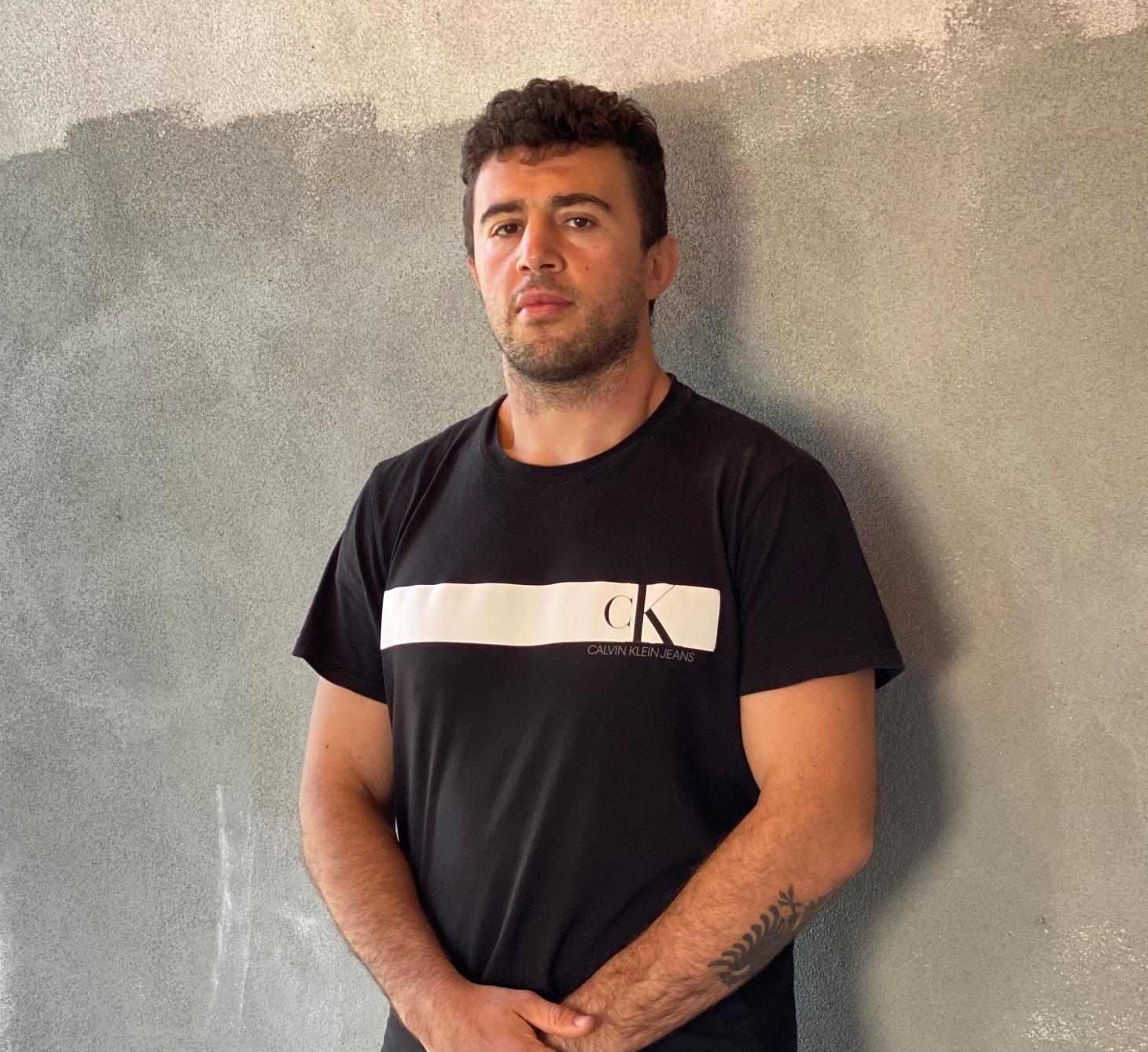
Floran Kacaku
Floran Kacaku earned a B.S., M.S. and Ph.D. in Mathematics from Northeastern University in 2009, 2011, and 2015, respectively, working with his Ph.D. advisor Prof. Petar Topalov. Dr. Kacaku’s research is in the field of partial differential equations. He spent the last 6 years teaching various levels of mathematics across multiple universities in the Greater Boston Area.
"I believe teaching mathematics starts with sparking the imagination of the students, and involving as many of their senses as possible in their learning experience. Self discovery makes learning a concept unforgettable." – Floran Kacaku
He is very excited to join the wonderful mathematics department at OSU as an instructor and plans to have a productive experience with his students and his colleagues alike. He is currently looking to expand his field of research. Dr. Kacaku is an avid sports fan and a lover of nature.
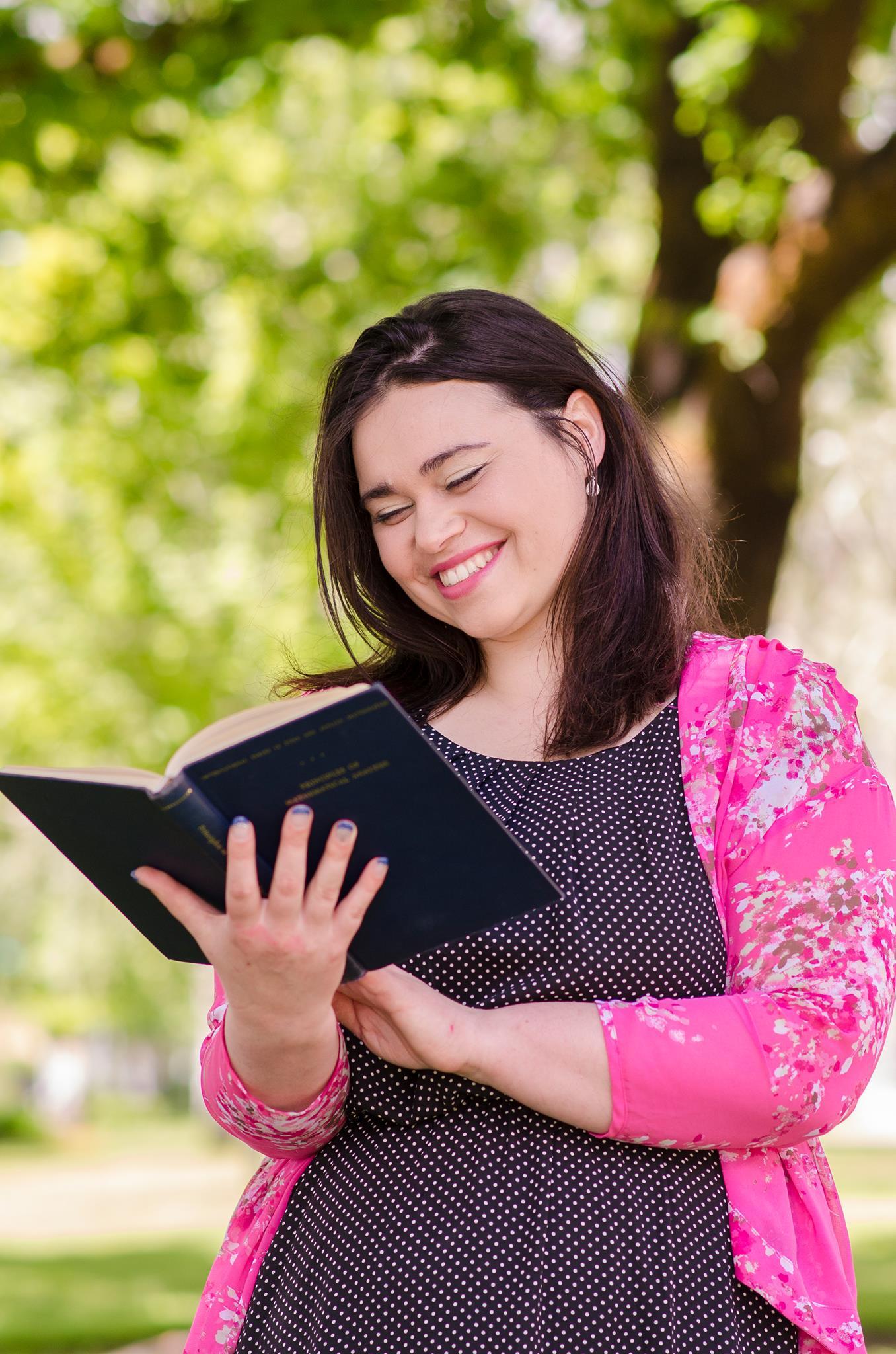
Hannah Barta
Hannah Barta earned a B.S. in mathematics at Central Washington University in 2018, and her M.S. at Oregon State University in 2021 under the guidance of Elaine Cozzi. She is a huge fan of real and functional analysis applied to PDE, and the Arzela-Ascoli and Banach-Alaoglu Theorems are her favorites. She loves exploring complex mathematical topics with students for the first time, and is especially interested in helping students become more introspective about their own ways of thinking and problem solving.
"It is always my practice to treat my students as people first and learners second. Learning math can be a deeply personal activity, and making sure students feel safe and supported enough to engage with the material is my primary focus." – Hannah Barta
Off campus, she is often found listening to classical music and epic film scores, reading and writing fantasy, singing, and playing with her fluffy Siberian cat Martha.
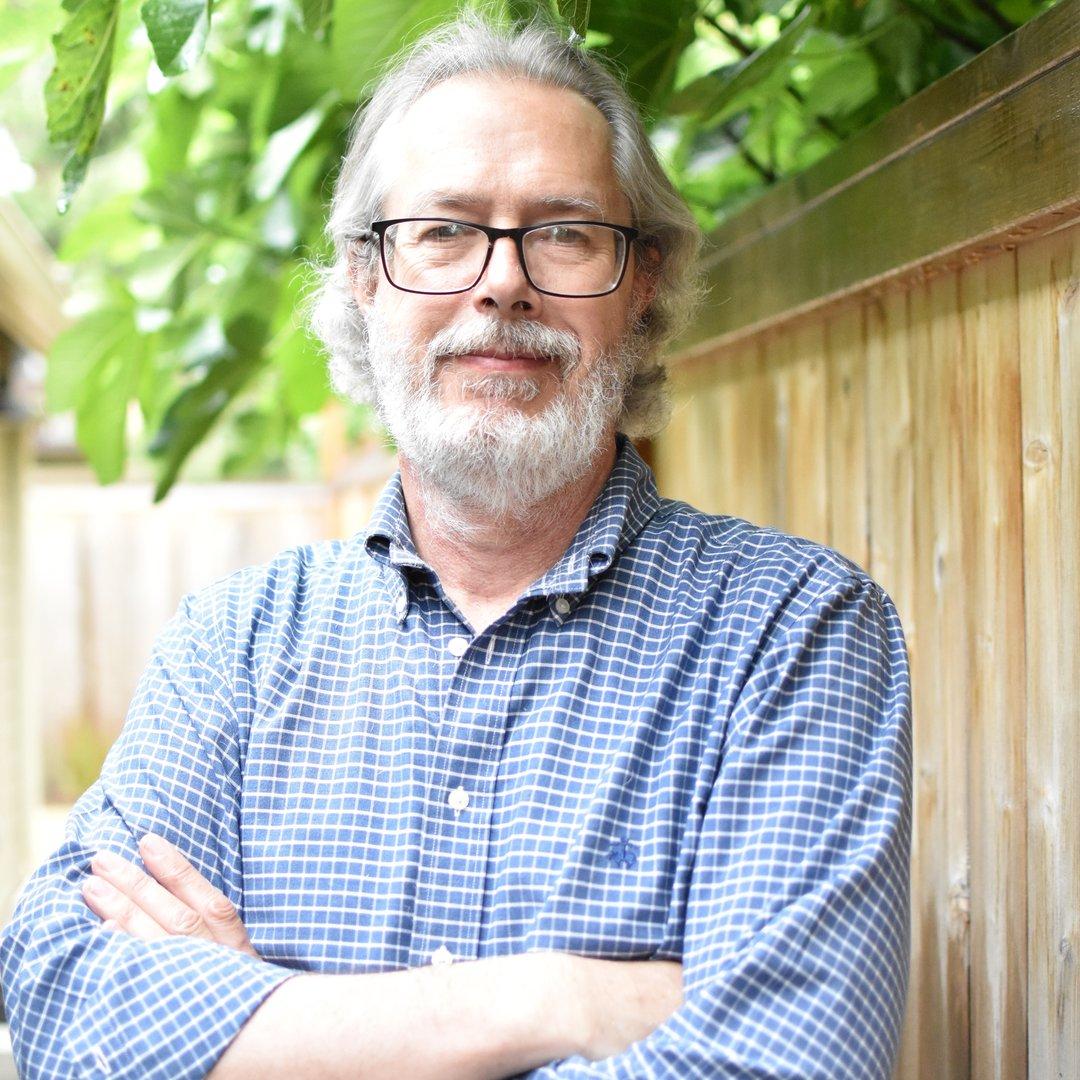
David Collett
Dave Collett earned a B.S. in Mathematics from the University of Montana and an M.S. from the University of Oregon. After several years in the Ph.D. program there he left academia and worked in building construction in order to support his growing family. He returned to teaching about 10 years ago and has since taught for Lane Community College and the University of Oregon.
“To me, teaching mathematics is about providing students with an environment where they feel comfortable making mistakes and asking questions. I want them to feel that I am there to help them succeed, not to constantly judge their mathematical abilities.” – David Collett
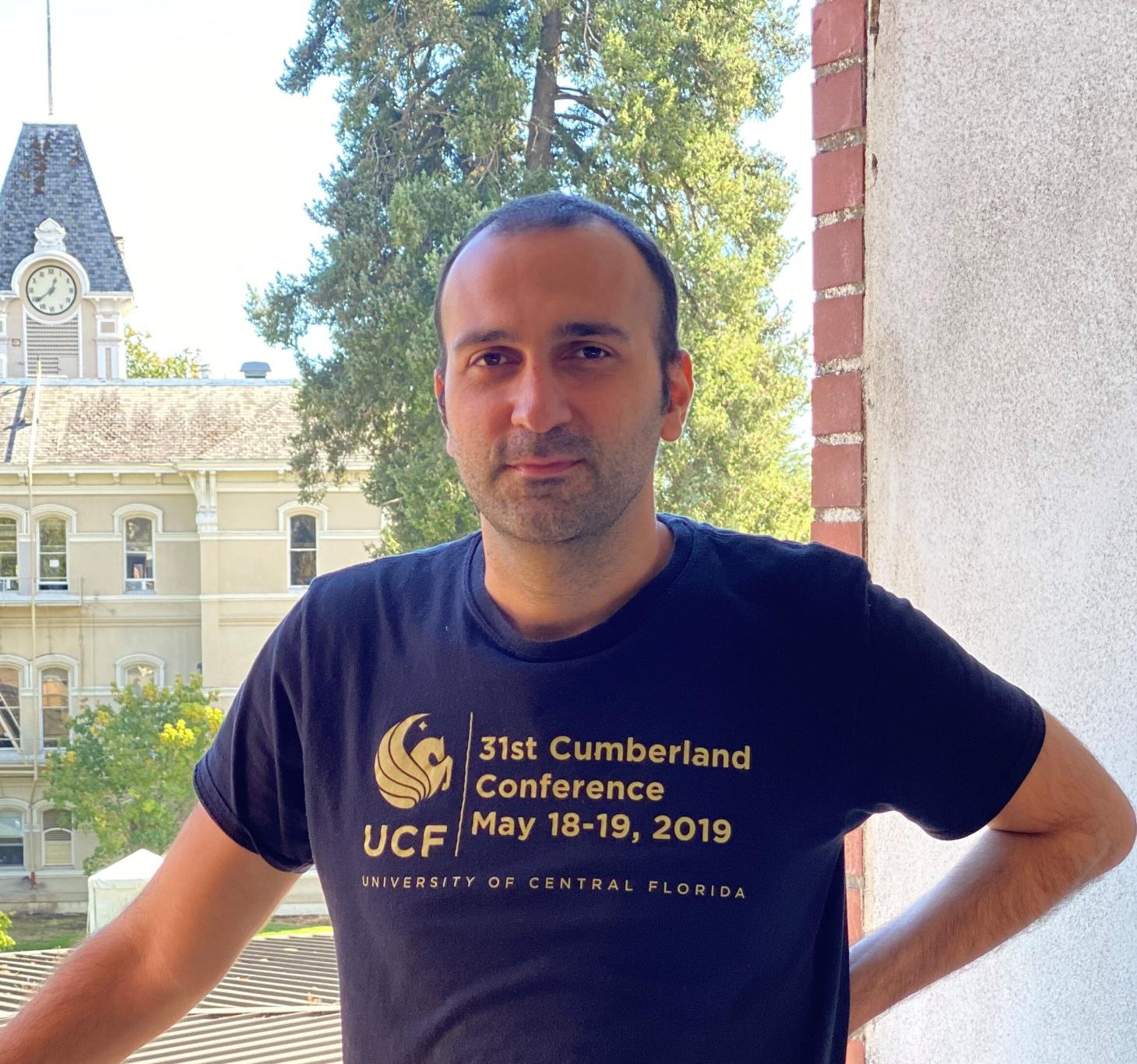
Farid Bouya
Dr. Bouya earned a B.Sc. in Computer Science in 2012 from Sharif University of Technology in Tehran, Iran, before earning an M.S. in Mathematics in 2014 and later a Ph.D. in Mathematics in August 2020 from Louisiana State University. He is most passionate about teaching and is especially interested in teaching competitive math to high school students and undergraduates.
His favorite theorem is Jaeger's 8-Flow Theorem.
“Ultimately, no one can teach you better math than yourself. A great instructor, a smart friend, a useful video, or a brilliant book, they are all helpful in getting you acquainted with a subject; but it is you who needs to seal the deal by re-creating it from scratch. Once you do so, you will be unstoppable.” – Farid Bouya
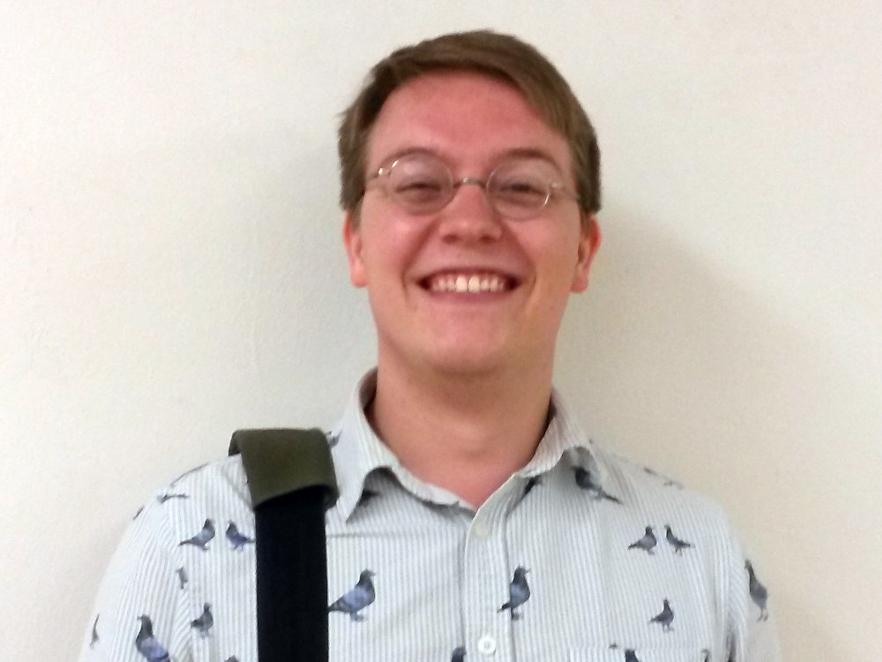
Dionysus Birnbaum
Dionysus Birnbaum earned a B.S. in mathematics from University of Arizona, and an M.S. and Ph.D. in mathematics from OSU, working with advisor Bill Bogley. Dr. Birnbaum's research is on low-dimensional topology and group theory, particularly asphericity. He also enjoys the mathematics of origami.
Brittanney Adelmann
Brittanney Adelmann earned a Ph.D. in Mathematics in August 2016 from Florida Atlantic University. Dr. Adelmann’s research focus is in the field of Quantum Cryptography but she is currently researching the use of undergraduate Learning Assistants (LAs) in mathematics courses for improved success of all students, especially underrepresented minorities.
“I want to change the perception so many students hold; that they are “not good at math” or “can’t do math” by being a teacher who engages students, provides a purpose, and helps them enjoy the subject. Life is about how you show up when it’s tough and accomplishments that were hard fought for mean more than those that were easily attained. I am truly blessed to have a front row seat in helping students be successful in their math courses.” – Brittanney Adelmann
She loves spending down time with her husband and two dogs, Sasha and Loki.
Roger Roybal
Roger Roybal earned his Ph.D. from the University of California, Santa Barbara in 2005 under advisor Mihai Putinar. His research focus was in Operator Theory.
This article was created by the Newsletter/Media Committee. Please email alumninews@math.oregonstate.edu with any comments.


